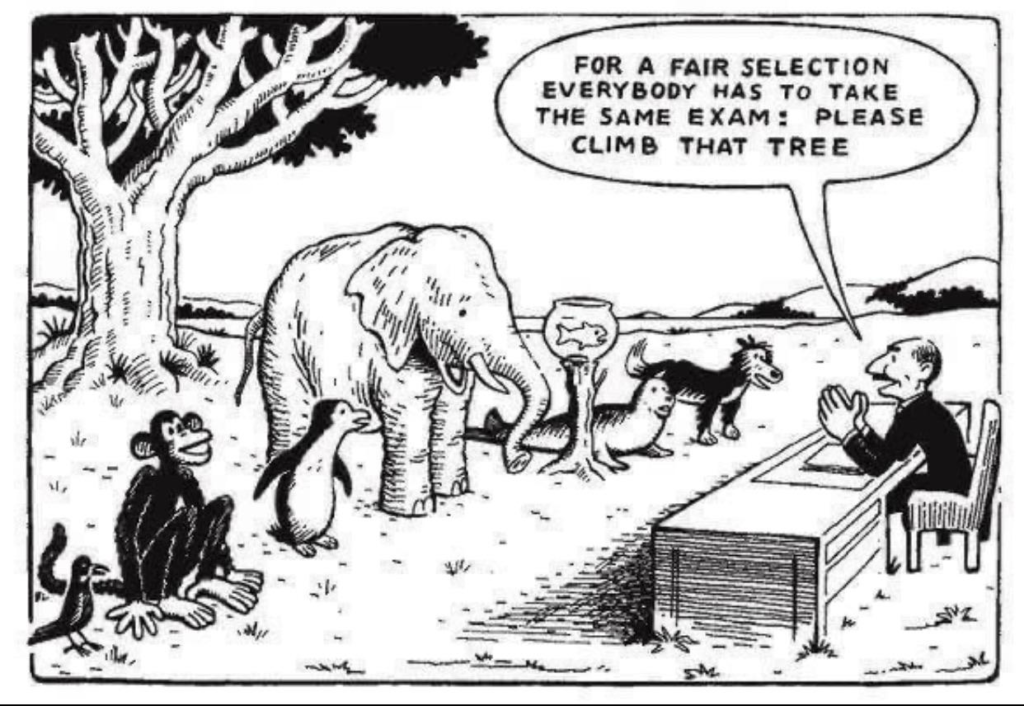Accomplishing your goals isn’t about buying a Lambo and impressing your neighbors. It’s about taking control of your life, reclaiming your personal power, and fulfilling your potential.
Repeatedly failing to get what you want can easily kill your motivation and drain your life force because, over time, your brain learns to believe that effort doesn’t pay off.
Your mind loses faith in your capabilities, and you risk falling into a death spiral of laziness, procrastination, and bad habits (because why bother doing anything when you think you’ll lose anyway).
And once you’re caught in that loop of self-destructive anti-behavior, you’re pretty much guaranteed to never get what you want.
That’s why learning to achieve your goals goes far beyond feeding your ego and climbing the status ladder.
Getting what you want means you can take control of your life and impose your will on the world. It proves that things can go your way, boosting your confidence and turning you into a driven, unstoppable freak of nature.

This is the first of a series of posts aimed at helping you decide which goals are worth pursuing while maximizing your chances of achieving them.
What are goals, and how can they help you take control of your life?
Your goals are a product of your innermost, deep-felt desires. Your mind creates visions of those desires being fulfilled in the future, and each vision is a goal.
Therefore, achieving your goals means you succeed in getting what you want. It’s how you take control of your life. In this scenario, time works in your favor as life gradually becomes more like you want it to be. You may even look forward to the passage of time because every day brings you closer to your goals.
If you’re saving to buy a motorcycle you’ve dreamed of riding for some time, and you know you’ll finally have the money six months from now, chances are you feel pretty excited about that date. Sometimes, you may even wish you could skip to the day you can finally roll the throttle and feel the wind on your body.
The same goes for working out and eating healthy. Perhaps you have a goal physique in mind and wish you could just skip to the day you’ve finally achieved it!
On the other hand, when we fail to achieve our goals, life stays far from our ideal. In that situation, life happens to us, and it seems we have no control over it. Instead of loving life, we merely tolerate it, and every tick of the clock brings one thing only: our decay.
You can counterbalance the damaging effect of time by taking control of your life and doing things that improve your existence: playing, creating, socializing, exercising, competing, learning a craft, advancing your career, or forming a family.
Those things bring a sense of progress that gives meaning to many people’s lives.
In fact, improving one’s life is perhaps the most common human goal, the point at which all other sub-goals converge.
Modern society has lost the ancestral sense of meaning religion used to provide. Therefore, the issue of improving our lives has perhaps become more important than ever.
If we fail to provide ourselves with a sense of progress, our very capacity to see life in a positive light might be threatened. I wonder how many depressions result from a failure to achieve what one wants.
All of this begs the question: How can we achieve our goals and actualize our potential? How can we get what we want?
The answer to that question is quite complex. It consists of multiple factors, some of which we might not fully understand or be aware of.
But I will try to introduce the ones I think are the most relevant.
1. The talent factor
One reason you might struggle with taking control of your life is that you’re competing in a game that doesn’t suit your natural strengths.
It’s the old “don’t judge a monkey by its swimming skills” thing.

We all have different strengths and weaknesses that are genetically predetermined.
While hard work can compensate for many of our shortcomings, our natural gifts play a significant role in competitive environments, and instead of ignoring them, we’d be better served by acknowledging them.
Modern Western culture values equality almost above everything else. And we like the concept of merit, the idea that everyone gets what they deserve.
The concept of humans having different innate abilities seems immoral and unfair, and it’s therefore often overlooked or even shunned. I don’t think that’s a great strategy since ignoring an issue rarely makes it go away.
In classrooms, sports fields, in business, and even in the sexual marketplace, the best players receive the most attention and praise. We want to attribute their success to variables we can control, like training and effort. Meanwhile, we tend to ignore factors we can’t influence, like genetics.
Indeed, training and effort might be the most important factor, but in an environment where everyone works hard, talent makes the difference.
And I don’t think we should necessarily feel bad about accepting this fact. After all, human value can’t be reduced to one single dimension. People have different capabilities, and one shouldn’t conflate talent with personal worth. Being gifted at something doesn’t automatically make you a better person.
Considering all this, we would all be better served by putting our egos aside while striving to find our personal strengths. This way, we may hopefully end up playing the games we are more likely to win.
Set goals you have a high probability of achieving, or aim for something so huge that it will improve your life even if you fail (shoot for the moon, and so on1).
2. The competition factor
Does your goal require you to outcompete a bunch of people? If so, you should seriously consider your chances of winning.
If you want to become a professional tennis player, you better be one of the absolute best on the planet .2
If you want to be a medical doctor, you will probably need to work hard and be an excellent student, but you will not need to be in the top 0.01% of doctors to make a living.
And if your goal is to get in better physical shape, you don’t really need to compete with anyone else.
Just follow a reasonable training and nutrition plan, and your health and physique will improve. You might not be among the strongest people in the gym, but you will still accomplish your goal.
When you only compete with your previous self, dedication is enough. But if a potential goal involves competition, you must seriously consider your chances of winning.
3. The strategic factor
We imagine our goals as the end result of a process. But the process is the only thing that brings you closer to the goal.
The end result is just a sexy image that turns us on and motivates us to act. Focusing too much on it distracts us from what really matters: the present moment, the very next step.
In practical terms, this means your daily goals are what you should really pay attention to. In the long run, whether you consistently achieve them or not will make the difference between success and failure.
Taking control of your life happens one small goal at a time. And to ensure you consistently achieve your daily goals, you need a winning strategy that consists of three different elements:
1. Take control of your life: delete and prioritize
Your goals should take priority, and you should craft your lifestyle and schedule accordingly.
Eliminate all superfluous commitments. Time management comes after you own your time and attention.
Obsessing over time management while exhausting your energy on commitments you hate but others expect from you is a coping mechanism that shields you from confronting your fears directly and doing the things you really crave.
Every single time you commit to something you don’t really want to do, you surrender a part of your agency.
Saying “yes” is like spending money. Once you spend money, it’s gone for good. Saying “no” is keeping the money in your pocket. Make sure you only spend your money when it’s really worth it.
Taking control of your life requires increasing the number of times you say no.
2. Your energy is finite. Spend it wisely
Time is not the main limiting factor in your productivity. We all have a finite amount of energy, so no, you can’t do everything you set your mind to, no matter how hard you try and how much of a sigma grindset you have.
Eventually, you’ll start running out of fuel, and your performance will suffer for it. You need to guard your energy with your life and manage it wisely.
Dedicate your energy first to the things that matter the most to you. Consider which things benefit the most from your being fully energized.
The quality of your creative work will be higher when you feel fresh. Save your zombie mode for more basic tasks.
Try to always run with some energy left in the tank; you will feel better, the quality of your work will improve, and your chances of sticking to the process long-term will increase.
3. Secure an income stream
Let’s be realistic: taking control of your life requires time and money.
You can’t have any control over your life if you’re always scraping for money, but the rich guy who works 80 hours per week and hates his job isn’t free either.
Most worthy goals require consistent dedication over a long time. If you don’t have the financial means to sustain yourself and keep the process going, you might never create the kind of stable environment that you need to achieve your goals.
Whatever you do for money should leave you with enough time and energy to dedicate to your true goals—unless your job already aligns with your life goals perfectly, in which case I salute you.
Depending on your objectives, cutting your living expenses and working part-time could be a good solution.
4. The time factor
Big goals require a long-term commitment.
Most truly life-changing objectives need months or years of work.
I’m talking about things like improving your physical shape or your finances, building a business, or, more generally, becoming the person you want to be.
Therefore, you absolutely need to find a way to adhere to the process leading to your goal. You need to be fanatic about this shit.
You are the result of every little choice you made and every single action you performed. If you want to improve your life, the quality of those choices and actions must also improve. Then, you need to be consistent for a long time. Taking control of your life is a long-term investment.
Learn to enjoy whatever little progress you make in a single day, and learn to push yourself when you don’t feel like working. You probably wouldn’t miss a day of work at your job even when you don’t feel like working. If you do it for your company or your boss, why wouldn’t you do it for yourself? Be professional when it comes to fighting for your dreams.
Time will exponentially multiply your results, but only if you consistently follow the process. Writing one page daily might not seem like much, but if you stick to it, you will have written a full book in a year.
Create conditions that facilitate your staying on track. If you have committed to things that completely drain your time and energy, you might need to solve that problem first.
When you manage to stay on track, time becomes an ally. Every day improves your situation and brings you closer to your goal. When you fumble from one thing to another, never fully taking control of your life, time becomes your worst enemy because the only thing it does is make you older.
5. The mental factor
Our internal narrative is the story we tell ourselves about our life trajectory. It’s how we explain our past up until the present moment and how we see our future.
Having a healthy, generally positive internal narrative makes you more driven, competitive, and harder to beat, which can significantly improve your chances of achieving your goals.
However, repeating positive affirmations doesn’t automatically put you in a world-champion mental state. It’s not just about what you intentionally tell yourself, it’s about what you truly believe.
If you tell yourself you’re the best singer in the world but deep inside, you believe you really suck, you’re going to freak out every time you step on stage.
You must have strong faith in yourself, your life trajectory, and your capabilities. You need to feel that your positive beliefs about yourself are true; you need to know they are.
Just to be clear, I’m not advocating that you become delusional. One shouldn’t ignore reality. But we could all learn to frame reality in the best possible light. How’s that for a good skill to learn? Pessimism is bad manners.
In a competitive setting or when attempting something difficult, people generally perform best when they believe in themselves.
By the way, your track record matters. Your brain sees past victories as proof of your capabilities. Victories increase your energy and motivation, boost your self-confidence, and make you happier.
Defeats prove that you can lose, and when they start building up, it’s easy to feel tired, demotivated, and sad. Your unconscious, then, tries to lead you somewhere else. It somehow tells you, “Don’t go there; we’ll lose again. Our life gets worse when you do that thing.”
This is another reason to try to play games you can win: your brain doesn’t like to lose, and if you keep doing it… you might end up feeling pretty bad.
6. The technology factor
While it’s true that tools and gadgets are often not the first thing one should consider when pursuing goals, one shouldn’t underestimate the edge a superior tool can provide. All else being equal, if your competitors use better tools than you, they will beat you.
That’s why everyone at Mr. Olympia takes steroids: even though all contestants are among the absolute elite of the most genetically gifted and hardest-working bodybuilders on Earth, their ultimate objective is being number one. Therefore, they can’t afford to put themselves at a competitive disadvantage.
If you’re in a field where people can leverage tools that give them a clear advantage, you might need to find a way to acquire those tools or risk being left behind.
Even though it’s generally good to embrace a sense of responsibility by focusing on honing your skills rather than throwing money at a problem, there comes a point when not having the right tools for the job actually shows a lack of responsibility.
7. The social factor
Everyone’s heard that you’re the sum of the five people you spend the most time with.
To me, this goes far beyond the financial side of things (your network is your net worth); it’s really about opportunities, happiness, and your mental state in general.
Surrounding yourself with colleagues in the same profession will motivate you to improve simply through social conformity and competition.
Moreover, if you make allies and build long-lasting relationships, some of them will eventually provide opportunities for you—especially if you are in a position to give value back to them.
Maintaining a healthy social circle that genuinely supports you and wants the best for you also has the added benefit of protecting you from the effects of excessive negative criticism.
You shouldn’t forget that humans are very sensitive to feedback, both positive and negative. Most people, no matter how mentally strong they are, are susceptible to external opinions.
Even elite athletes perform best on their home turf.
If you have a close group of friends who genuinely support you and want the best for you, you will be much better equipped to face criticism and conflict. You will also have a strong safety net to rebound from whenever things go wrong, as they sometimes do when your goals are truly ambitious.
Conversely, if you are surrounded by people who don’t really care about you or even actually want to see you fail, that energy will very likely infect your mind.
Of course, we should aim to be mentally strong, but the truth is most people are more susceptible to negativity than they dare admit.
Considering how external opinions influence our minds, it’s good to be proactive about building a healthy social circle.
- In the unlikely case you haven’t heard this fortune cookie-esque quote, the full version goes: “Shoot for the moon. Even if you miss, you’ll land among the stars” ↩︎
- A 2014 study by the International Tennis Federation found that only the top 336 men in the professional world ranking made some profit. Women needed to be among the top 253. ↩︎


Leave a Reply